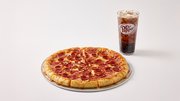News
Millennials willing to pay more for better, more customizable food
The younger generation considers QSRs to be 'dollar food.'
September 9, 2014
The staggering growth of the fast casual segment – as opposed to the stagnancy or decline of every other segment in the vast restaurant industry – can be attributed to changing consumer preferences. New research from brand consultancy group Brand Keys reiterates this explanation in its examination of 3,000 consumers spanning the Baby Boomer, Gen X and Millennial generations.
"You only have to look at the same-store sales of brands like McDonald's, Burger King and Taco Bell to see the shift that's taking place," Brand Keys Founder/President Robert Passikoff said in a news release. "The declines reported by all three segments prove the loyalty shifts seen in our Brand Keys Customer Loyalty Engagement Index, with fast food brands rapidly losing loyalty and profits."
McDonald's, for example, today reported its US sales for August, which were down 2.8 percent, the chain's lowest performance 10 years.
The survey conducted in Q3 identified the following preferences from each generation:
Baby Boomers
Baby Boomers reported an 18-percent decrease in QSR visits. The demographic places high values on health and living well, Passikoff said.
"They can afford, what nearly a third of the sample (32 percent) called, ‘quality food,' something that they attribute more to the fast casual restaurants like Panera and Chipolte than they do to the traditional fast food brands," he said.
The survey showed that Baby Boomers also expect better service, which 65 percent say they associate with fast casual restaurants.
Gen X
Gen Xers reported an 11-percent decrease in visitation to QSRs – the lowest decline in the three groups examined – but with an equal increase reported in visitation to fast casuals.
"The Gen X group is more pragmatic about their decisions about eating out, so they seem to be more vulnerable to value positioning," Passikoff said. "But they're skeptical about brands too, and are looking not for price-value but value for dollar. They feel the fast casuals offer that too, equal to and more often better, than the fast food brands."
Millennials
Millennials reported a 20-percent decrease in visits to QSR chains. Conversely, 42 percent reported increased visits to fast casual restaurants in the past year.
"Millennials are, perhaps, our most sophisticated segment right now," Passikoff said. "They're the toughest to reach via traditional marketing à la McDonald's et al. And, they are the toughest group with whom to build loyalty."
According to the Brand Keys research, more than half of Millennials (53 percent) call traditional QSRs "dollar food," which could be affecting their connection with the brands, Passikoff suggests.
"You don't build brands or loyalty on the basis of price," he said. "That only works for commodities."
Nearly 90 percent of Millennials said they are look for fast, casual food that is "tastier, healthier and more customized." They are willing to pay more for better, more customizable options, Passikoff said.
"It's true that consumers in all cohorts have definite expectations about eating out, but a new McWrap isn't going to do it," he said. "The traditional fast food brands have tried to be all things to all customers and failed. Longer menus have just resulted in longer waits, but more significantly, a real dilution of the brand. Your brand may be all over, but you can't be all things. You really do have to stand for something in the mind of the consumer. Otherwise, loyalty for fast food brands is only going to move in one direction. Down."










